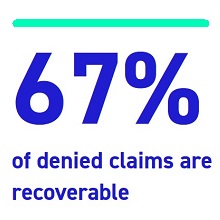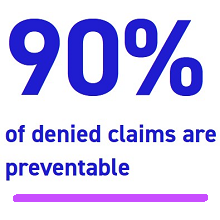Certain MA Rule Language ‘Gives You Much More to Work With’ in Appealing Claim DenialsBy Nina Youngstrom | June 26, 2023
Although the world opened up for hospitals and other providers with the April regulation that requires Medicare Advantage (MA) plans to abide by the two-midnightThey predict that CMS intervention will be a necessity to ensure MA compliance, but also see language in the rule that will help fend off denials or at least supercharge appeals when the rule takes effect Jan. 1. Baker is skeptical MA plans will respond to the new rule until CMS enforces it. He’s not alone. It’s imperative to keep CMS informed of “payers not complying with the final rule,” although working with the MA compliance department may be productive, said Kendall Smith, M.D., chief physician advisor for PayerWatch, at a June 21 webinar sponsored by the firm.
According to the rule, which was published in the Federal Register April 12, MA plans are required to apply the same standards to beneficiary coverage decisions as are applied to traditional Medicare patients.2 CMS expects MA plans to base medical necessity decisions on national coverage determinations (NCDs), local coverage determinations (LCDs) and other coverage criteria. As the rule now makes abundantly clear, MA plans are only allowed to create internal coverage criteria when qualifying requirements aren’t fully established in Medicare statutes, regulations, NCDs or LCDs. The coverage criteria must be based on “evidence in widely used treatment guidelines or clinical literature” and Here’s the new language: In another helpful update in 42 C.F.R. 422.101(b)(6), CMS goes beyond stating MA plans could use internal coverage criteria in the absence of NCDs and LCDs. Now the rule requires publicly accessible internal coverage criteria and defines the terms, Haynes said. “This should give providers much stronger language to argue against the reasons payers give for denying care,” Haynes said. He urges providers to be familiar with the revisions and ask the MA plans why they didn’t meet the definition. “It will be helpful in the long run to give providers much better ability to make clearer arguments” in their appeals of MA plan denials with payers, administrative law judges, arbitrators and independent review entities, Haynes said. Not all the reasoning for the denials is the same. “Requiring the MA plans to follow the guidelines for access to SNF and IRF immediately is different. That’s patient care,” said Ronald Hirsch, M.D., vice president of R1 RCM. “The two midnight rule is really about payment and not access to necessary care.” While he said adopting the inpatient-only list is straightforward, other provisions of 42 C.F.R. 412.3 are subjective. “A doctor simply declaring that a patient is expected to need two midnights does not make it so,” Hirsch explained. “There is significant practice variation across the country and MA plans have the right, just as Livanta does now with their short-stay audits, to be able to question the validity of that expectation or the medical necessity of that second midnight.” Endnotes (Published by the Health Care Compliance Association, Report on Medicare Compliance, Volume 32, Number 23, June 26, 2023)
|
Quick Links
Latest News
- Healthcare Finance: Many payers, providers unprepared for interoperability and prior authorization rule, WEDI finds
- Healthcare Finance: Bill would allow physicians to make prior authorization judgments
- Becker's: States consider crackdowns on AI in prior authorization
- Healthcare Finance: Optum Rx announces a reduction in drug prior authorization
- ABC: Struggling for Survival: How one patient overcame insurance denials for critical blood transfusions
8600 La Salle Road, Suite 625, Towson, Maryland 21286
[email protected]
© Copyright 2024, Association for Healthcare Denial and Appeal Management (AHDAM)




